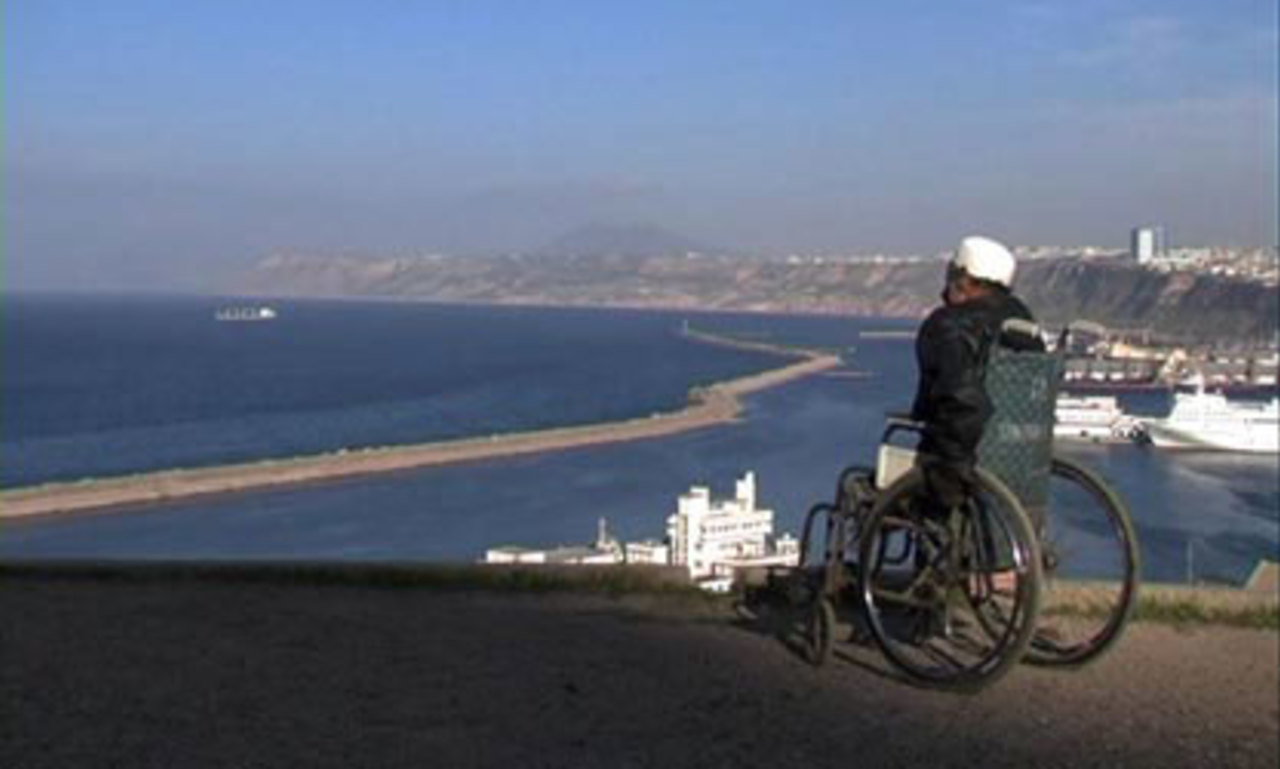By Chlotrudis Independent Film Society
Rating: 3.5 cats
Director: Jean-Pierre Lledo

Country: france
Year: 2008
Running time: 155
IMDB: http://www.imdb.com/title/tt1093803/
Bruce says: “Every country has its horror stories. Algeria has more than its share. Most recently, civil war tore Algeria asunder from 1990-1998. In his film ALGERIA, UNSPOKEN STORIES Jean Pierre Lledo focuses on an earlier period. In July 1962 Algeria gained independence after 132 years of French colonization. Thus began an extraordinary exodus, over one million people in total, comprising one of the greatest diasporas in history. Fleeing were not only the French but Italian, Spanish, Greek, and Sephardic Jews many of whose families have lived in Algeria for centuries. Whether it was sheer panic or the perceived impossibility of cohabitation that drove them away may never be known. Many people have not spoken about their travails for obvious reasons – fear, anger, denial and guilt. Algeria has been well measured in numbers of deaths, years of servitude, and sizes of emigrations. Few of us have heard the personal side of the Algerian conflict. Lledo has chosen four stories to help us understand what has transpired. Predictably what emerges is a picture that is anything but black and white.
“The first story is that of Assiz who came from a family of artichoke farmers. His uncle was in the liberation front and led a massacre that killed many of the colonists. It was a bloodbath for both Arabs and Europeans who struck back. Yet Assiz fondly remembers Roger, a wealthy colonist who helped protect Assiz and his family from those who retaliated. For years their families had lived in harmony. Assiz resents that the tranquility of his youth was obliterated by hatred and over-zealous behavior.
“Next is the story of Katiba, a blonde, western looking Arab woman who hosts an Algerian National Radio talk show. She was exiled from her home in Algiers and returns with the filmmaker to her old neighborhood. A man on a stoop ironically judges her incorrectly ‘You don’t know our reality. The past is over and done with. The camera should be here for us not for you.’ In front of him is a woman who unapologetically declares ‘I would have planted bombs. No qualms, sorry.’ Katiba visits a friend who spent years in prison, the only female Muslim combatant to have writer a memoir. ‘We all share the responsibility,’ she says of Algeria’s troubled past. In prison she discovered there were Europeans who were also anti-colonists. Until then, she had no idea.
“Constantine, the subject of another story, reminisces how murder drove the entire Jewish community out of Algiers. He finds it confusing as to exactly how people position themselves on the human rights spectrum. ‘They’ve got to stop villanizing us.’ He, too, sees the gray areas. He acknowledges that some of the Europeans were no different from us; they even spoke Arabic. The fourth subject is a theatrical director who helps the filmmaker flesh out some prominent figures in Oran at the time of the independence. One of the more colorful is Tchitchi, a name that crops up every time someone tells a pre-war story about Oran. Lledo finally tracks Tchitchi down and attempts to get the flavor of the period. Tchitchi was quite the party boy in his day and quite the dancer. In his words ‘It wasn’t like now. You could talk to girls.’ He and others claim that what used to be paradise now is nothing. Forty years after the war Oran still has not been rebuilt; its soul has been destroyed.
“ALGERIA, UNSPOKEN STORIES has been banned in Algeria, the place that would benefit most from its screenings. In Lledo’s words ‘I am questioning that which is not allowed – Nationalism.’ Although the film is too long and at times confusing to one who is not familiar with Algeria and its history, it bears an important message. In Algeria the baby was thrown out with the bath water. 3.5 cats
“ALGERIA, UNSPOKEN STORIES screened at the 2008 Tribeca Film Festival.”
